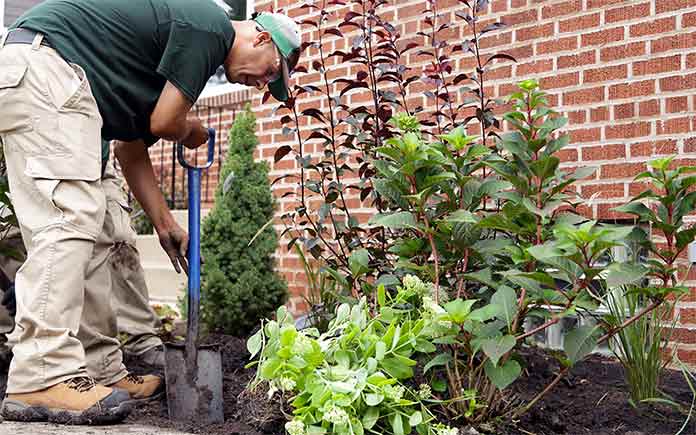The Chinese New Year, also known as the Lunar New Year, is a vibrant celebration observed by Chinese communities worldwide. This festive period begins with the year’s first new moon and continues for 15 days until the full moon. As homeowners prepare for this joyous occasion, decorating the home with traditional symbols of luck and prosperity becomes a central focus.
Let’s dive into Chinese New Year decor and discover how to bring luck and prosperity into your home.
Must-Have Chinese New Year Decorations
Chinese New Year decorations are more than just ornamental. They carry deep cultural significance and may attract good fortune. Here are some must-have decorations for a traditional and auspicious celebration.
Red Chinese Lanterns
Red lanterns symbolize joy, prosperity, and good fortune in Chinese tradition. They’re believed to ward off evil spirits and usher in a bright future filled with abundance. Regarding placement, feng shui principles suggest hanging lanterns in pairs for optimal energy.
Sets of red lanterns with intricate gold designs can be found online, perfect for creating a festive atmosphere. For those who want to go all out, larger sets of paper lanterns allow for decorating multiple areas of the home.

Lucky Money Envelopes
Lucky Money envelopes, also known as red envelopes or hongbao, are popular elements of Chinese New Year celebrations. These bright red envelopes are filled with money and given as gifts to family and friends, symbolizing good wishes and blessings for the recipient.
The tradition of giving Lucky Money envelopes has deep cultural roots. Parents often leave a red envelope and two mandarin oranges by their child’s bedside on New Year’s Eve. During family gatherings, married couples typically give red envelopes to younger, unmarried family members, symbolizing the passage into adulthood and the sharing of wealth.
When giving Lucky Money envelopes, follow proper etiquette. Use crisp, new bills and avoid including loose coins. Many prefer even dollar amounts and steer clear of the number four, as it sounds similar to “death” in Chinese.

Spring Couplets
Spring Couplets, or Chun Lian, are among the oldest and most revered Chinese New Year decorations. These poetic verses, written in black or gold calligraphy on bright red paper, are traditionally pasted on both sides of the front door.
The history of Spring Couplets dates back to the 14th century, when they were initially written on peach wood and adorned with images of protective deities. People would hang these boards over doorways to ward off evil spirits before the new year arrived.
Today, Spring Couplets typically feature wishes for prosperity, happiness, and good fortune in the coming year. Homeowners can purchase pre-made couplets or create their own for a personalized touch.
To incorporate Spring Couplets into your decor, paste them on both sides of your front door. Choose couplets with meaningful messages, or consider custom-made couplets for a unique touch. If creating your own, practice calligraphy beforehand for the best results.

Auspicious Symbols and Decorations
Chinese New Year decorations often feature symbols and characters believed to bring good luck and prosperity.
Fu Characters
The Fu character is a powerful symbol in Chinese culture, representing happiness, good fortune, and blessings. Traditional Fu decorations consist of diamond-shaped paper sheets adorned with ornate gold or black writing.
Interestingly, Fu characters are often hung upside down as wall decor. This practice stems from a play on words in Chinese, where “upside down” sounds similar to “arrive” or “come. ” Thus, an upside-down Fu symbolizes the arrival or pouring out of good fortune in the new year.
To decorate with Fu characters, hang them upside down on walls or doors. Use red paper with gold or black writing for authenticity, and consider DIY options to create personalized Fu character decorations. Place them in prominent locations.

Paper Cuttings
Initially developed for celebratory and religious purposes, paper cutting has become a beloved hobby and decorative art. During the Chinese New Year, many use paper cutouts to adorn lanterns, doorways, windows, and walls or as party favors.
Watch as artist Tina Yu makes an intricate cutout for the Spring Festival:
To incorporate paper cuttings into your decor, hang them on windows for a beautiful play of light and shadow. Use them as wall decorations or table centerpieces. Try your hand at creating your own with paper-cutting kits and choose designs featuring symbols like flowers, animals, or Chinese characters.
Chinese New Year Dragons
Dragons hold a special place in Chinese culture and are particularly prominent during New Year celebrations. As the only mythical creature in the Chinese Zodiac, dragons are revered for their wisdom, strength, and ability to bring good fortune.
To incorporate dragon motifs into your Chinese New Year decor, hang dragon-themed garlands or banners, use dragon figurines as table centerpieces, display dragon-themed wall art or tapestries, and include dragon designs in your paper cuttings or lantern decorations.
- Chinese New Year Dragon Garland from Bememo
- Paper Dragon and Red Lantern Decorations from Angela&Alex
- Lunar New Year Dragon Ceiling Decor by Gaudiwel
Traditional Plants and Flowers
Plants and flowers play a significant role in Chinese New Year decorations, each carrying its symbolic meaning and believed to bring specific blessings for the coming year.
Kumquat Trees
Kumquat trees symbolize good luck and prosperity. These small citrus plants are often given as gifts or used as decorations during the Spring Festival.
The golden color of kumquat fruits represents wealth, while their round shape symbolizes completeness and fulfillment. The leaves of the kumquat tree are also significant, representing longevity and perseverance.

Blooming Flowers
Flowers are an essential part of Chinese New Year decorations, symbolizing new beginnings and the arrival of spring. Display potted plants or fresh-cut flowers in prominent areas. Use flower-themed paper cuttings or paintings, include floral patterns in your tablecloths or cushions, and create a centerpiece with a mix of auspicious flowers.
Here are a few popular choices and what they traditionally symbolize:
- Peonies: wealth and honor
- Orchids: luxury, beauty, and fertility
- Plum blossoms: perseverance and hope
- Chrysanthemums: longevity and good luck
Festive Table Decorations
A beautifully decorated table is central to Chinese New Year celebrations, setting the stage for festive feasts and gatherings with family and friends.
To create an inviting tablescape, use a red tablecloth as a base, symbolizing good fortune. Incorporate gold accents to represent wealth and prosperity. Set the table with unique chopsticks, often adorned with good luck symbols, and use paper cutout placemats or chargers for a traditional touch. Scatter lucky candy or oranges around the table for sweet blessings, and add a centerpiece featuring kumquat trees or blooming flowers.
Remember to balance traditional elements with modern aesthetics for a festive yet stylish look.
- Chinese Knot Chopsticks Set from CheeseandU
- Tableware and Napkin Set from Partystadl
- Paper Cutout Chargers from Big Dot of Happiness
- Lunar New Year Rabbit Confetti from Big Dot of Happiness
- Year of the Rabbit Table Runner from the Artoid Mode Store
Need affordable and easy party favors for your dinner guests? This video tutorial from Apple Art & Craft demonstrates how to make DIY paper fans:








